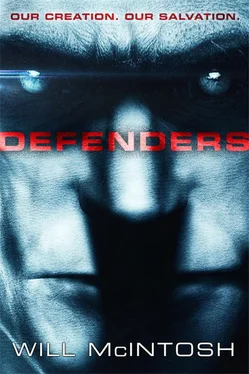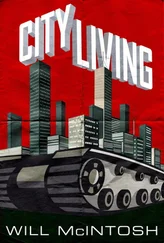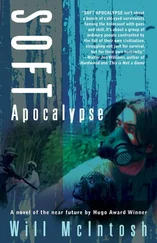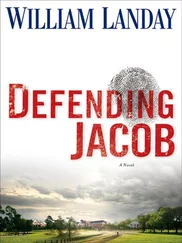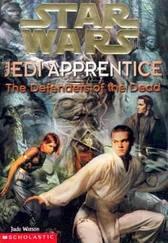“Yes.”
Lila waited for him to elaborate, but evidently “Yes” was the extent of it. “What sort of goods or services do you think defenders would be likely to offer, when trade relations open?”
“I don’t know,” Erik said. “I’m not involved in business and commerce.”
Lila thought of their weapons factories, and wondered if they were planning to go into the human weapons business. That was an unpleasant thought.
After dinner, they carried their wine to the living room. With the equivalent of three or four human-sized glasses in her, Lila felt more relaxed. Erik seemed more at ease as well. When he saw Lila take a seat on the rug rather than try to climb onto a chair, he sat on the floor across from her, his back against the sofa. He looked at his glass, smiled, took a drink. “We rarely drink more than a small amount.”
“Why is that?” Lila asked.
Erik closed his eyes, spoke as if reading from a page written on the backs of his eyelids. “A warrior is always in control of himself. Alcohol compromises that control.”
Lila nodded. True enough. They were developing their own standards of behavior, their own culture. In time it would mature. She crossed her legs and leaned back against the chair.
Erik crossed two of his legs, his expression playful.
“Is this an inappropriate posture among defenders? In Vietnam, it’s considered rude to sit with your legs pointing at someone.”
“A warrior maintains balance, both feet on the floor if he is standing or sitting in a chair, both legs on the ground if he is sitting on the ground.” Erik swung his third leg over his other two and laughed. His laugh was loud, and had a mechanical, slightly panicked quality to it.
She studied his enormous face, his deep-set eyes. They seemed almost human in that moment. Maybe it was the wine. “Sometimes it’s okay to allow ourselves to be a little off balance, when we’re among friends.”
“True.” He lifted his glass, held it up to the light before taking another drink. “My comrades are jealous of me, because our friendship is especially special. I’m becoming famous.”
Lila wasn’t sure how to respond. Defenders just didn’t get modesty. “That’s nice. I’m happy for you.”
“Part of it is my excellent social skills, but part of it is you.” He considered her. “What is it about you, do you think, that sets you apart from your companions?”
She told Erik the story of the first time she saw a defender, leaping off the roof of the school to save her. How in the last days of the war she’d hung posters of defenders in her room, read everything she could about them, daydreamed about having a defender as a special friend.
By the time she’d finished, Erik was beaming. “And now you have one.”
“That’s right.” She yawned, covered her mouth belatedly. “I’m getting tired.” She stood, opened her arms. “Can I give you a hug goodbye?”
“A hug?” Erik seemed taken aback.
Lila dropped her arms. “It’s okay, a handshake will do just as well.”
Erik looked off at the wall for a moment, then shook his head emphatically. “Handshakes are formal. You’re right, special friends should hug.”
Erik leaned forward to stand, but Lila motioned to him to stay put. “If you stand I’ll be hugging your legs.”
She went over and wrapped her arms around his torso, amazed by how solid, how muscular he was. It was like hugging an oak tree. Slowly, tentatively, he set his hands on Lila’s back. His hands were shaking. Lila pressed her cheek against his shoulder. It felt good—safe—to be in his arms.
Erik’s chest hitched. He seemed to be struggling to control his breathing. She looked up. He looked uneasy, his eyebrows pinched.
“Let me guess, warriors don’t hug,” she said jokingly.
Erik didn’t smile. He was trembling.
Lila hugged him tighter. This was what she’d really dreamed of when she was a teenager, she realized. Not going to the mall with a defender, but being held by one, being rocked to sleep in his protective arms, told that no one could ever hurt her again…
Before she knew it was happening, she was crying. Deep, howling sobs racked her as she clutched Erik, her face buried in his shirt. This day had ground her down to a nub. Seeing Bolibar killed, the bloody fight. Erik squeezed her tighter, his body shaking. Lila looked up. Erik was crying, too.
Tentatively, she rocked him, left and right, left and right. He seemed soothed by the motion. As she rocked him, she realized something: She’d looked up to the defenders as father figures, but Erik didn’t see her as a daughter. He saw her as a mother.
May 28, 2045. Sydney, Australia.
Lila woke at dawn and couldn’t go back to sleep. Her shoes lay on the end of the bed where they’d fallen when she kicked them off, exhausted and a little drunk, the night before. Even in the faint gray light she could still make out speckled stains on the toes. Bolibar’s blood. She’d packed only one pair of heeled shoes, and even if defenders’ shoe stores had sold black pumps, they wouldn’t have had them in Lila’s size.
Erik’s painting was propped on the dresser. Besides the human figure’s hair being yellow, it bore absolutely no resemblance to Lila. It wasn’t even clear it was a woman. The face was twisted, its expression a grimace, to the extent its expression could be made out. Erik’s face was rounder in the painting than in real life, his complexion pinker. He looked more human in the painting. Peering closely, Lila realized she looked a bit like a defender.
There was a sharp knock on her door. “ Lila? ” The tone of Oliver’s voice set her heart thumping. She sprang from the bed and flung open the door.
Oliver was staring at his feet. “Azumi is dead. Drowned. Defenders found him in the river.”
“ Drowned? How did he drown?”
Oliver looked up. “I don’t know. I guess he could have climbed over that stone wall if he tried, but why on Earth would he do that?”
Lila dragged her hand through her tangled hair. She knew Oliver was thinking the same thing as she. Azumi hadn’t climbed over the retaining wall—he’d been thrown. He’d angered some defender, probably through the same type of misunderstanding that cost Bolibar his life. Or maybe it was that general, the one he’d broken up with. That made a sick kind of sense.
There were no police. As they’d witnessed on the night of Bolibar’s murder, defenders meted out justice spontaneously, and haphazardly.
“Where is his body?” Lila asked.
“They buried it. They collect up all the dead each day—defender and Luyten, and now the occasional human—and bury them in pits.” He shrugged. “That’s how they did it during the war; I guess they saw no reason to change.”
“So we can’t see if there are visible injuries on his body.”
“I’m not sure it matters,” Oliver said. “It’s not like they’re going to check him for DNA and search for his killer.”
Poor Azumi. He’d so wanted to leave. It was almost as if he’d had a premonition. With a sudden jolt, Lila realized she was the first to argue that they should stay despite the danger. Everyone else had agreed, though; it wasn’t as if they all would have packed up if she hadn’t opened her mouth.
“There’s other news as well,” Oliver said. “We’re finally meeting with the Triumvirate, on Friday.”
June 1, 2045. Sydney, Australia.
Oliver had imagined the Triumvirate as larger than the average defender, their faces a bit more animated, but of course that was silly. They’d all been created from the same genetic blueprint, and epigenetic variation wouldn’t create such extreme differences. The defenders on the dais, sitting in enormous plush seats that looked suspiciously like thrones, looked to Oliver like any other defenders.
Читать дальше
